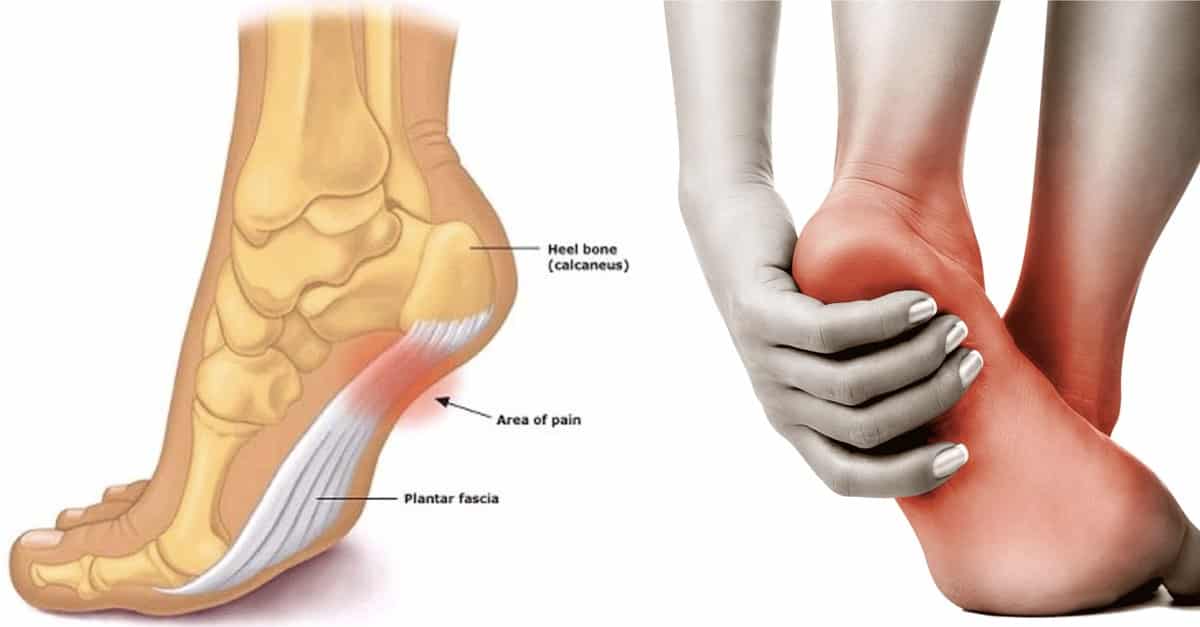6 Types of Foot Pain You Should Never, Ever Ignore
Most of us don’t think about our feet much. They help us walk, run, and play every day. They also keep our body balanced and stable when we move around. But we only notice them when they start to hurt. Our feet are often hidden in shoes and socks, and it’s easy to forget about them. But we shouldn’t ignore foot pain—it can mean something is wrong and needs help before it gets worse. Today, I will tell you about six kinds of foot pain you should never ignore. Let’s learn about them together!

1. Sharp Heel Pain in the Morning Could Be Plantar Fasciitis
If you feel a sharp pain in your heel when you first wake up and stand up, you might have something called plantar fasciitis. This happens when a band of tissue on the bottom of your foot becomes sore and swollen. This can happen if you do lots of walking, running, or standing.
The pain might get a little better as you move around, but it is very important to pay attention to it. If you ignore it, the pain can get much worse. Resting your foot, stretching, and wearing good shoes can help, but you should also see a doctor if the pain does not go away.
2. Swelling and Redness
Sometimes feet can swell up if you stand for a long time, and that’s normal. But if your foot is swollen and also red and warm, it might mean there is an infection. One kind of infection is called cellulitis, and you need medicine to make it better.
Another problem that can make your foot swollen is called gout. It makes the big toe joint hurt a lot and swell up. If you see these signs, you should go to the doctor right away because infections can get worse if they are not treated.
3. Pain in the Big Toe Could Be Bunions or Arthritis
If your big toe hurts, it might be because of a bunion. A bunion is a big bump that forms where your big toe meets your foot. It can make your toe hurt a lot, especially if your shoes are too tight.
Your big toe might also hurt because of arthritis, which makes the joint stiff and sore. A doctor can help by giving you exercises, medicine, and telling you what kind of shoes to wear to help with the pain.
4. Burning Feeling in Your Feet Could Be Nerve Problems
A burning feeling in your feet might mean there is a nerve problem. This can happen if you have diabetes, which can hurt the nerves in your feet. Sometimes, it can also happen if you drink too much alcohol or don’t get enough vitamins.
If you feel a burning feeling in your feet, it is very important to talk to your doctor. Getting help early can make it easier to stop the problem from getting worse.
5. Pain in the Ball of Your Foot Could Be Metatarsalgia
If the bottom of your foot hurts, especially in the front part, it could be something called metatarsalgia. This happens when the bones in that part of your foot become sore. It can happen from wearing high heels, running a lot, or standing on your toes.
You can help this pain by resting, using ice, and wearing better shoes with more cushion. But if it still hurts, you should see a doctor so they can help you feel better.
6. Sudden, Severe Foot Pain After an Injury Needs to Be Checked Right Away
If you hurt your foot and it starts to really hurt all of a sudden, you should not ignore it. It could mean you broke a bone or hurt something inside your foot. Sometimes a broken bone doesn’t look swollen or funny, but it will still hurt a lot.
If you do not get help, the injury can get worse. A doctor can take an X-ray to see if anything is broken. Getting help right away can make sure your foot heals properly.
When Should You See a Doctor?
If your feet hurt a lot or the pain does not go away after a few days, you need to see a doctor. Pain is your body’s way of saying something is wrong. If you take care of the pain now, you can stop bigger problems from happening later. Always take care of your feet and ask for help when they hurt.
Frequently Asked Questions
1. Can foot pain go away by itself?
Sometimes foot pain goes away if it is just from being tired or standing too much. But if the pain is really bad or lasts for a long time, it is important to see a doctor so it doesn’t get worse.
2. What kind of doctor should I see for foot pain?
You can start by seeing your regular doctor. They might send you to a doctor who knows all about feet, called a podiatrist. This kind of doctor can help find out what is wrong and help make it better.
3. Can I do anything at home to help foot pain?
Yes! Resting your foot, putting ice on it, taking some medicine like pain relievers, and wearing comfy shoes can help. Stretching your feet or rubbing them can also make them feel better. But if the pain does not stop, you should see a doctor.
